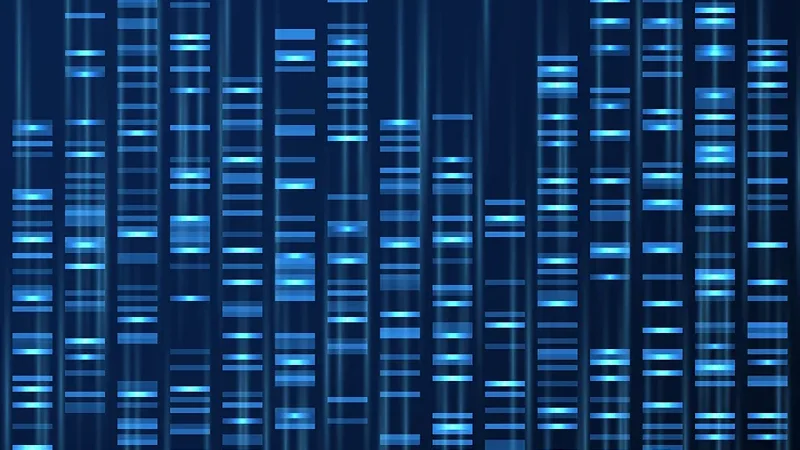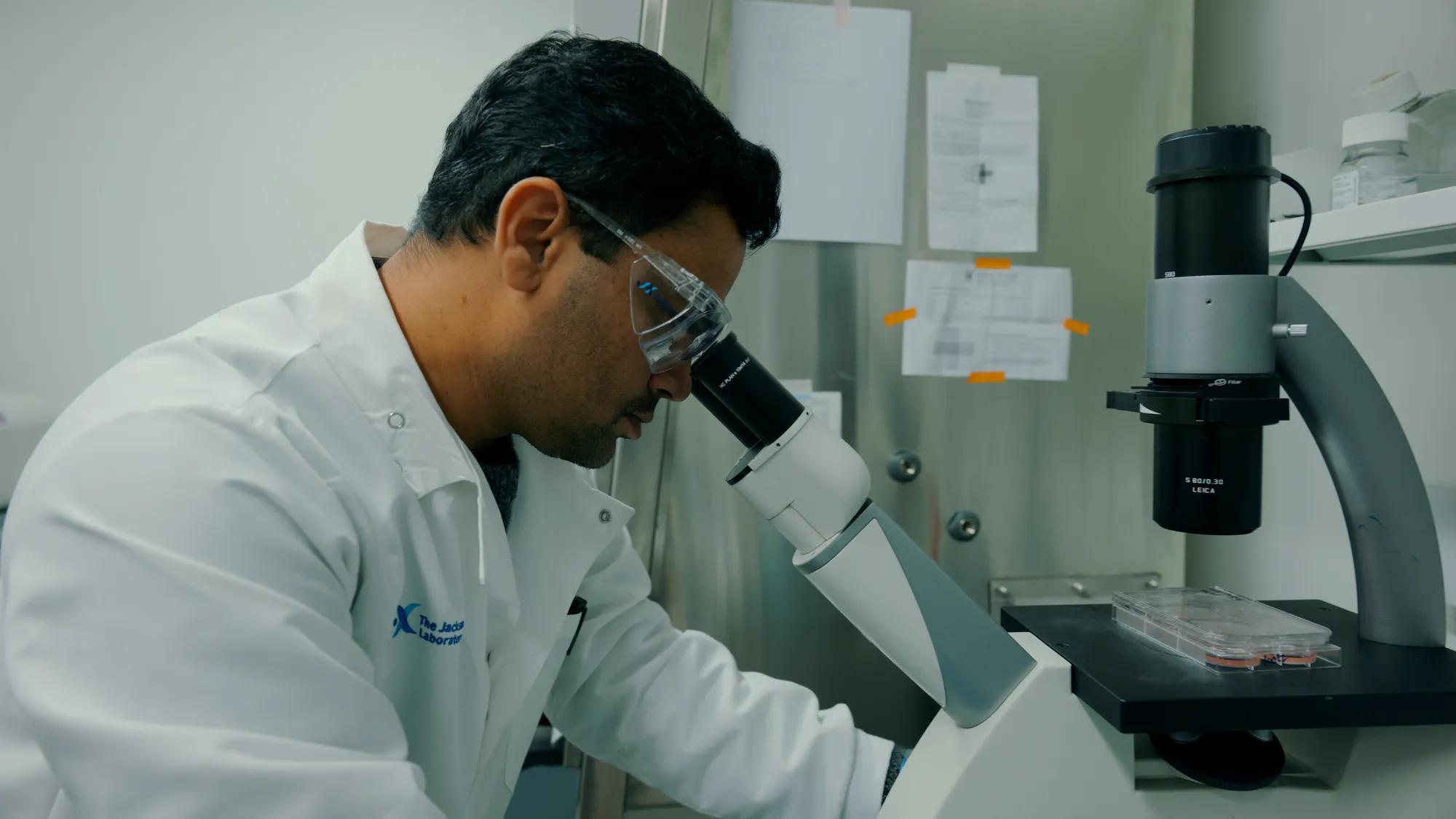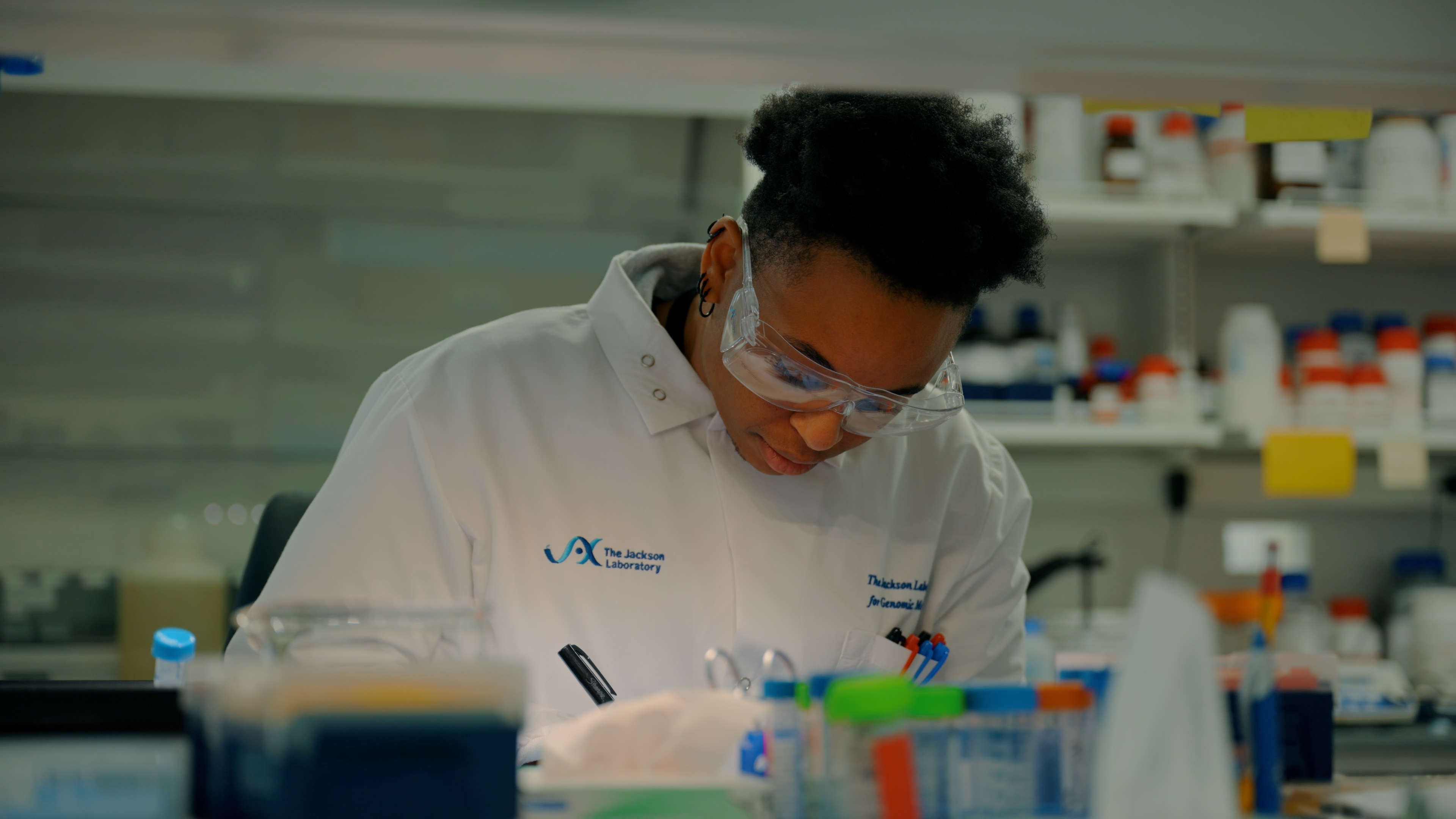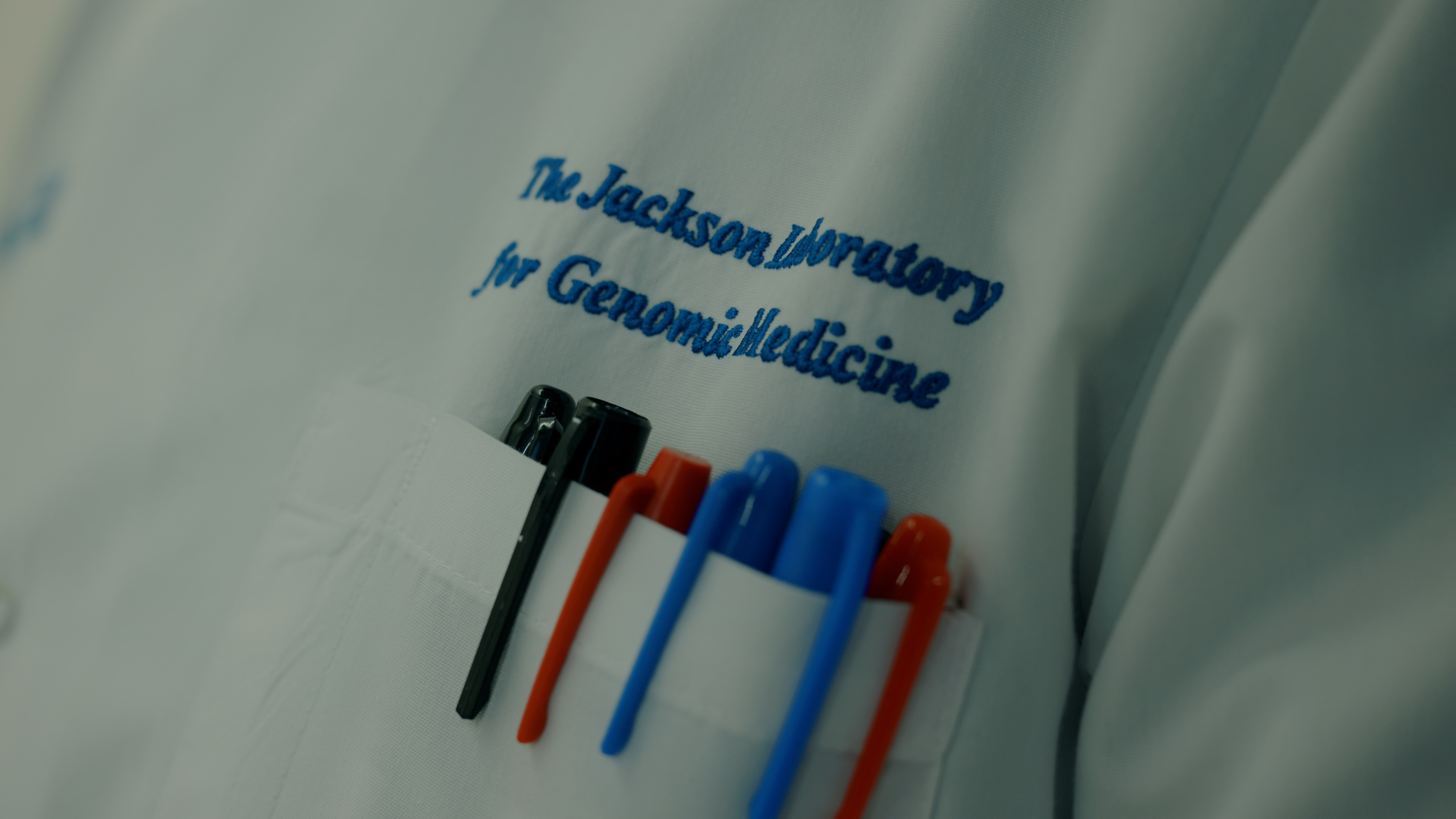Video | May 4, 2025
Splitting his time between the clinic and the lab at The Jackson Laboratory, Hinson uses cutting-edge stem cell and mouse models to uncover the hidden genetic culprits behind heart failure — and design personalized treatments to stop it. His work could redefine the future of medicine.
Watch how he is making that happen.
Transcript
Many assume that Travis Hinson is a surgeon, someone who spends his days repairing defects and abnormalities of the human heart. In a way, they’re not entirely wrong.
As a clinical cardiologist and scientist specializing in inherited cardiovascular diseases, Hinson operates at the molecular level. Instead of surgical tools, he employs what he calls “molecular scissors” — cutting-edge genetic techniques that go beyond identifying mutations linked to heart failure, enabling their repair. His ultimate goal is to develop targeted treatments tailored to each patient’s unique genetic makeup.
“My work is about fixing genetic problems early, so surgery is never needed,” he explained.
Hinson holds a joint faculty appointment as an associate professor at The Jackson Laboratory and serves as the Jim Calhoun Endowed Associate Professor of Cardiology and Genetics at UConn Health. When he’s not seeing patients, he’s in his JAX laboratory, using mouse and human stem cell models to unravel the genetic mechanisms behind heart failure.
His research embodies the core promise of precision medicine: developing customized therapies with higher success rates and fewer side effects than traditional treatments.

The capacity to make animal models that are avatars of patients, particularly the genetic types of diseases at a scale that provides us unprecedented opportunities - to both understand all the different flavors of a disease. And then test treatments more efficiently, because we have such a vast capacity.”
- Travis Hinson
From engineer to physician
Growing up in Louisiana, Hinson was surrounded by mentors who worked as engineers in the petroleum industry. He initially followed in their footsteps, launching his early career as a chemical engineering intern at DuPont. There, he helped produce chemicals that contributed to cleaner energy and safer construction materials. However, he soon realized that he wanted to do more than just produce these materials at scale — he wanted to help discover them.
Driven by this curiosity, Hinson pivoted to medicine where potential discoveries could more directly impact human health, earning his medical degree from Harvard University. Yet his engineering mindset remains central to his approach to human health.
I think about practicality. An engineer might discover a chemical that makes paint safer or a car run cleaner. What if I could make a discovery that helps people live longer and feel better?”
- Travis Hinson
That question fuels his research into gene-based treatments for heart failure, a condition affecting more than seven million Americans and the leading cause of death among adults.
A personal approach to saving lives
Hinson’s work in the clinic continues to affirm his commitment to transforming human health. Some of his most rewarding experiences have involved using genetics to "solve the puzzle" of complex medical cases that had stumped other doctors. In one instance, his team identified a genetic mutation responsible for dilated cardiomyopathy within a large extended family. This discovery enabled them to screen and proactively treat multiple family members — many of whom had no symptoms yet — potentially saving their lives.
"It started with one patient and one discovery, but it ended up impacting hundreds of people across the country," he said.
The number one cause of death rate is from cardiovascular disease. And among those one of the most prevalent is heart failure. And the mortality of heart failure is, surprisingly to many people, similar to a diagnosis of cancer.”
- Travis Hinson
The number one cause of death in the United States is heart disease. The Travis Hinson Lab at The Jackson Laboratory for Genomic Medicine is leading the charge toward breakthroughs in cardiovascular disorders that lead to heart failure. The lab’s current research involves engineering cardiac microtissues to study the most common forms of familial hypertrophic and dilated cardiomyopathies due to sarcomere mutations.
Learn more

The Hinson Lab
Utilizing genomic approaches to interrogate mechanisms of inherited cardiovascular disorders.
View more
JAX Center for Precision Genetics
The Jackson Laboratory Center for Precision Genetics (JCPG) seeks to create and validate new, precise animal models of incurable and genetically complex human diseases. The JCPG was initiated in 2015 as one of three NIH-funded Pilot Centers.
View more


